Creating Community: In Conversation with Ritu Sarin and Tenzing Sonam
The Dharamshala International Film Festival (DIFF), founded by filmmakers Ritu Sarin and Tenzing Sonam in 2012, is one of India’s foremost independent film festivals. Dharamshala, which is home to a large part of the Tibetan community in exile, offers itself as a site of exploration around questions of belonging, justice, memory, lived experience and the transient nature of existence. Reflecting on some of these themes, the festival has grown into a community that fosters solidarity and support.
Having entered its thirteenth edition, this year's festival—held at the Tibetan Children’s Village in McLeodganj from the 7th to 10th November—presented an engaging mix of independent cinema from around the world and interactive conversations with the film community gathered in Dharamshala. We spoke to the founders about why they started the festival, the importance of community, the infrastructural role festivals like this can play and the future of independent film festivals in the country.
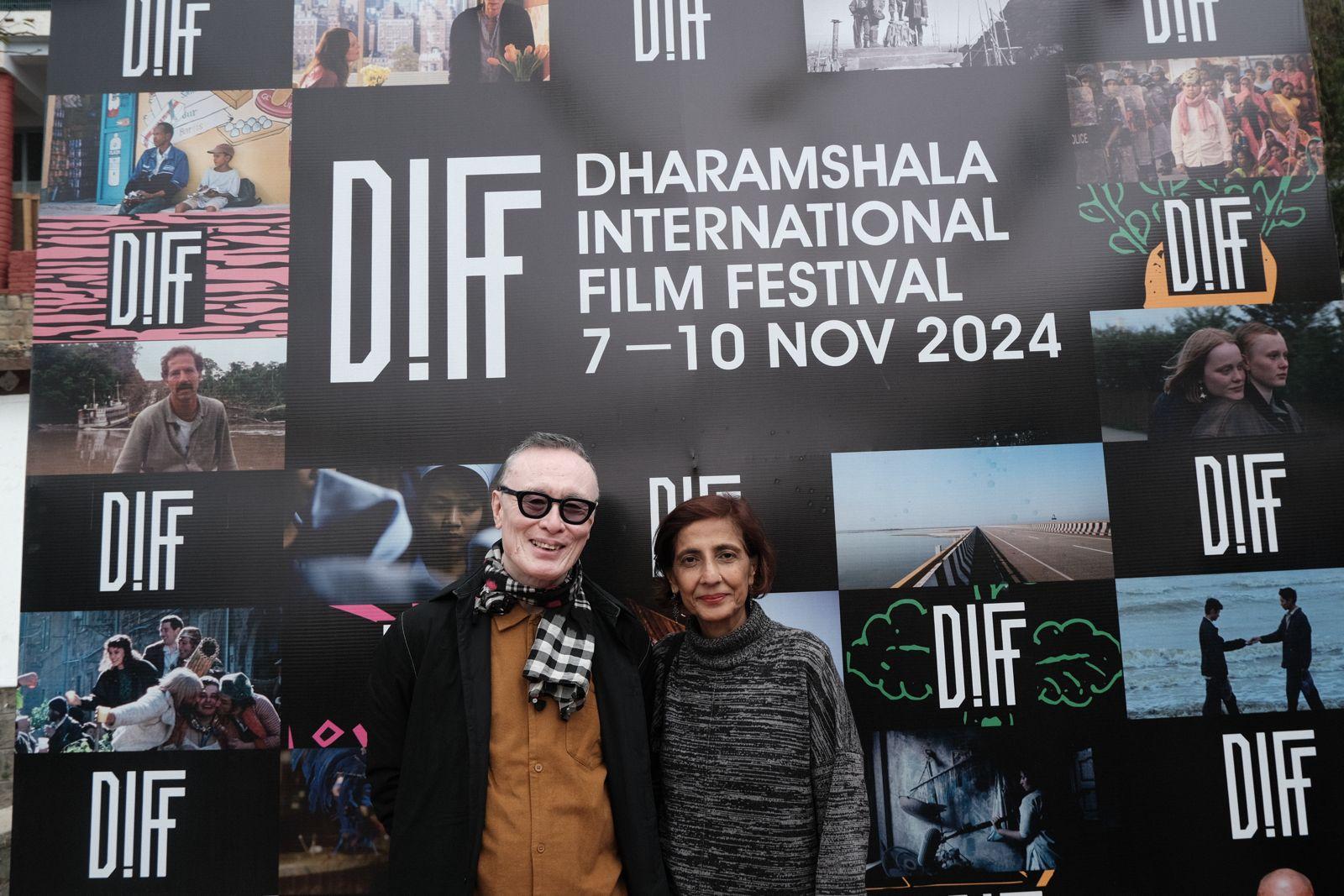
DIFF founders Tenzing Sonam (left) and Ritu Sarin (right).
Mallika Visvanathan (MV): As DIFF enters its thirteenth year, I want to go back to the beginning. Can you please tell us a bit about why you started DIFF?
Ritu Sarin (RS): Thirteen years—that's too much for two people to push it along, it's way too many. We first started it as a community project. Tenzing and I, being an Indian-Tibetan couple and having been filmmakers all these years, have ourselves been to many festivals around the world. And sometimes we were really welcomed by festivals that were often in small places or very intimate. So we thought, why don't we try to have a festival here for the community in Dharamshala.
Tenzing Sonam (TS): Dharamshala is quite cosmopolitan but there weren't many contemporary cultural events. So we thought let's try and bring good independent cinema from across the world and have a small festival so that people here could have the opportunity to watch diverse films. That was really the initial idea—it was just really aimed at our own local community. As we have a lot of contacts as filmmakers within the film world, we were able to invite filmmakers to Dharamshala. This was something we felt was very important right from the beginning: that it was good to have filmmakers present their films so that there could be some kind of interaction with the audience. In the very first edition, we had Hansal Mehta, Umesh Kulkarni, Guy Davidi and Asif Kapadia, among others. Even though it was a tiny festival and we were showing films on DVDs, we had all these filmmakers there. Then, as the word spread every year, more and more people started coming from across the country. And before we knew it, the festival had snowballed into something much bigger than we ever imagined.
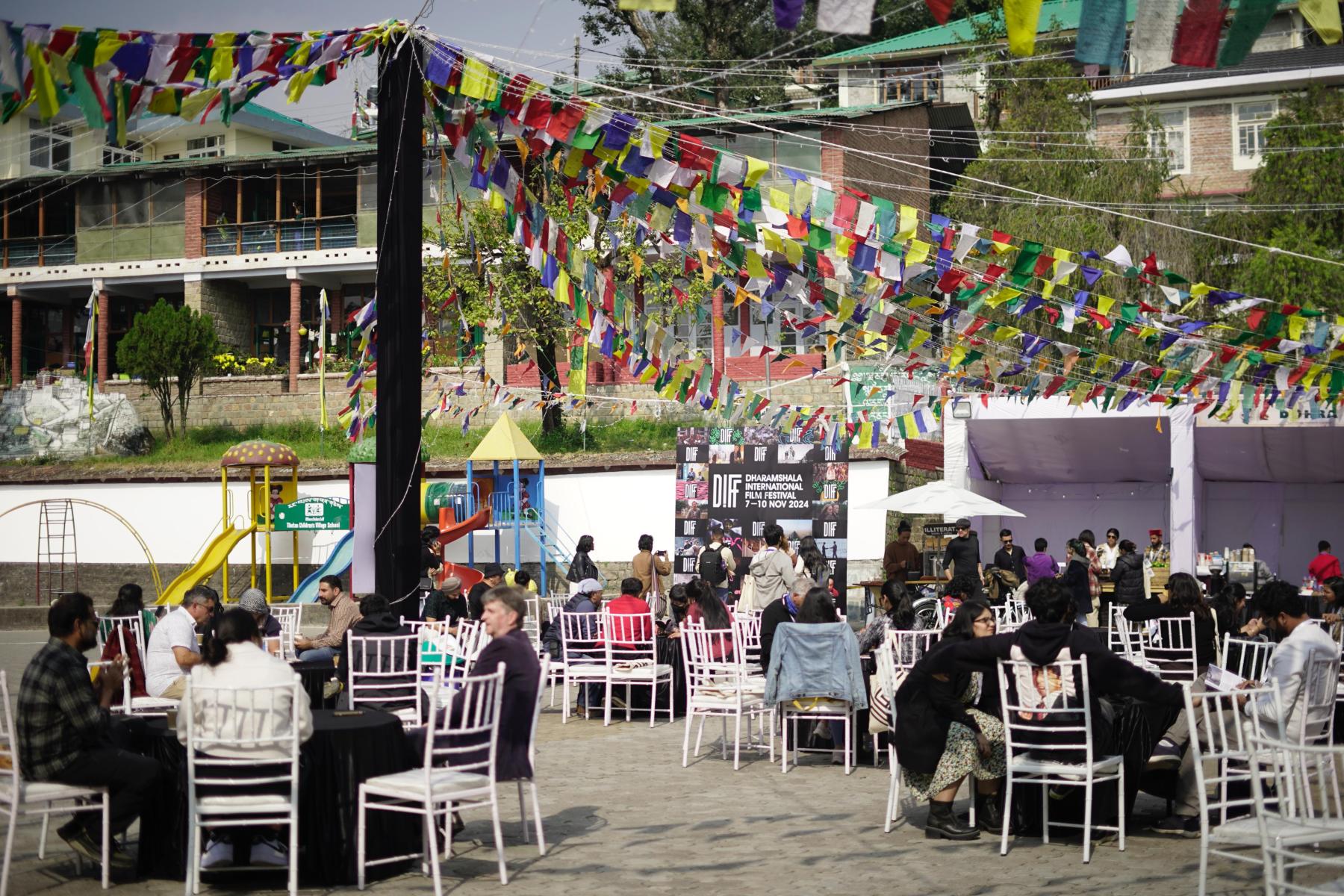
The festival, hosted at the Tibetan Children's Village in Dharamshala, attracts filmmakers and cinephiles from all over.
MV: How has the idea of community continued to grow and shape DIFF over its various iterations?
RS: We were thinking about the local community when we started. But by the third or fourth year, we realised that the festival had become a safe space where independent filmmakers felt at home. They would come here and feel really welcomed and rewarded. This community of independent filmmakers has now grown to include not just the directors, but producers and cameramen and all different kinds of people engaged in cinema work. They come here regularly and on their own. So now there's a whole different community being created, which is very special.
The interaction between the filmic community and the local community happens because our festival is held at the Tibetan Children's Village, which is a big residential school. As a result, the filmmakers engage and learn a bit about what's happening in the Tibetan world, which a lot of people don't know anything about. And the Tibetans in the school are really amazed to see these young people descend there. The people they interact with every day are not the kind of people that we get at our festival.
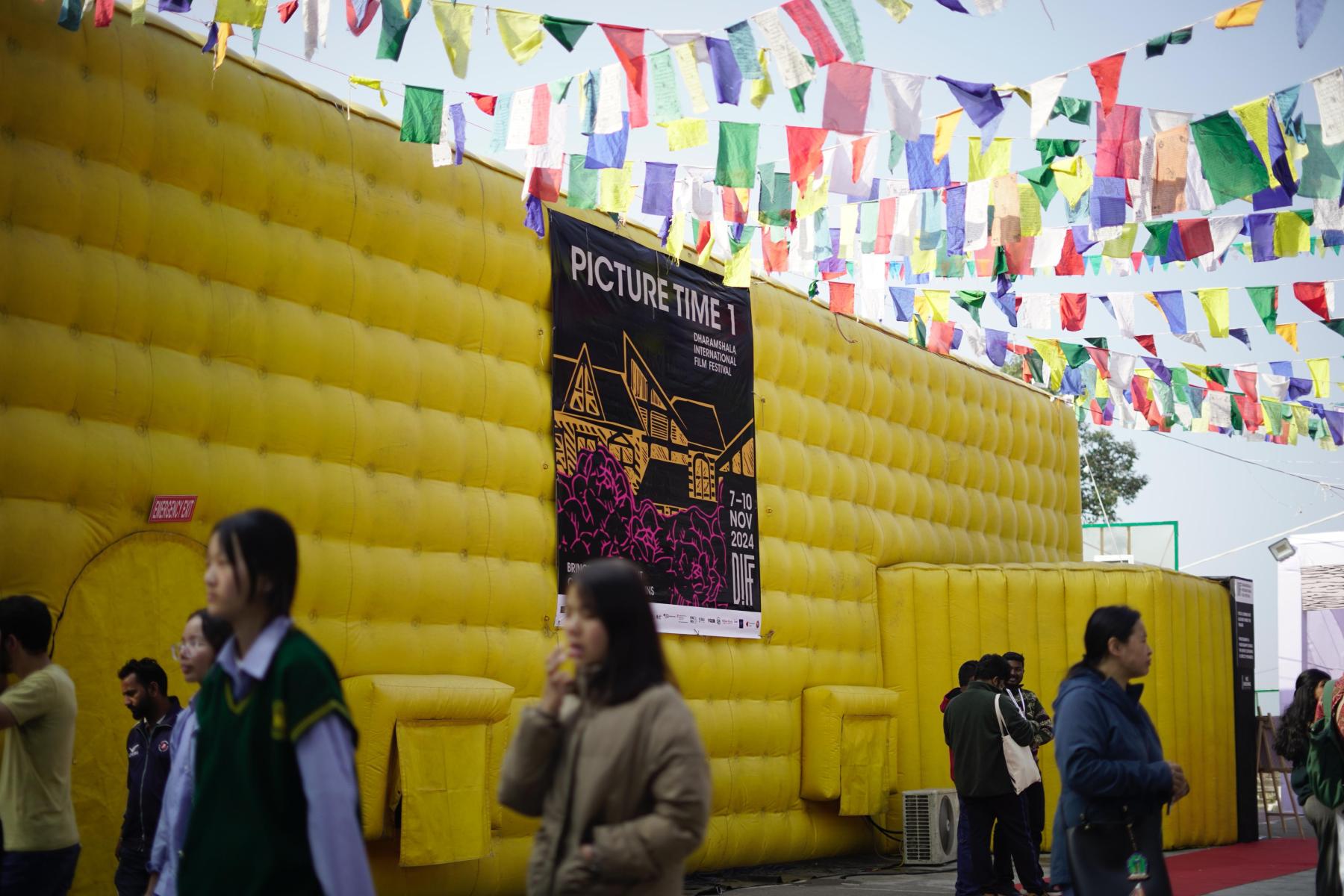
DIFF hosts four screens, including two inflatable state-of-the-art cinemas in partnership with PictureTime.
MV: Since you were talking about young people, DIFF has provided a platform for many emerging filmmakers to present their first films as part of the short and mid-length programme. Can you tell us a bit about how you think festivals can act as forms of support?
RS: Tenzing and I are filmmakers ourselves, and we realised that we're normally just quite lonely and alone as individuals trying to work in cinema. But when we went to festivals, we got to meet other filmmakers and other like-minded people and also got to have audiences who received our film. And we realised that this is very important for us. We first started by deciding to do a curated festival but very soon, we realised that there were a lot of young filmmakers who don't get the opportunity to show their films to audiences in a theatre. Once we opened up our festival for submissions, more and more filmmakers started applying with short films and mid-length films. And we were surprised by how amazing some of these were. We found that often shorts filmmakers had a chance to experiment more than feature filmmakers because there was less money involved. So they were really trying all kinds of new things or speaking about communities they were part of.
It became important for us to actually nurture these young people. So we did a Himalayan Mentorship Lab for many years for Himalayan filmmakers all the way from Ladakh to Arunachal Pradesh. And then we did the Producer Lab for two years, which is a Producer-Director Lab. We also did an Editing Lab for one year. We have been trying consistently to do more work on nurturing filmmakers. But it has been hard for us to keep it going because of financial difficulties. What we have managed to do is gather the people in one space. And also we always have master classes and panel discussions. So that is a key part.
TS: What we have noticed over the years is that there is an explosion of filmmaking going on around the world. Obviously, filmmaking itself has become more accessible and possible compared to the days when we started out. We are getting very high-quality films made on very low budgets, made by young people. But there aren't enough platforms; there aren't enough spaces for these films to reach an audience. And that is where festivals like DIFF are really crucial to nurturing that new cinematic talent that is emerging. So at least they have a chance to be part of a festival, have the audiences, discuss with audiences and among each other as well as making these networks. In that sense, that is something that we have done quite successfully in terms of providing a platform to especially young, first-time filmmakers to show their films. And I can't understate how important it is for these platforms to exist.
RS: And we still get the older, more experienced filmmakers who want to show their films. So that's the other thing.
TS: And then there is that meeting point, where, because DIFF is such an informal yet intimate space, it is easy for a young filmmaker to meet someone like Dibakar Banerjee or Anurag Kashyap. So that meeting becomes possible as well.
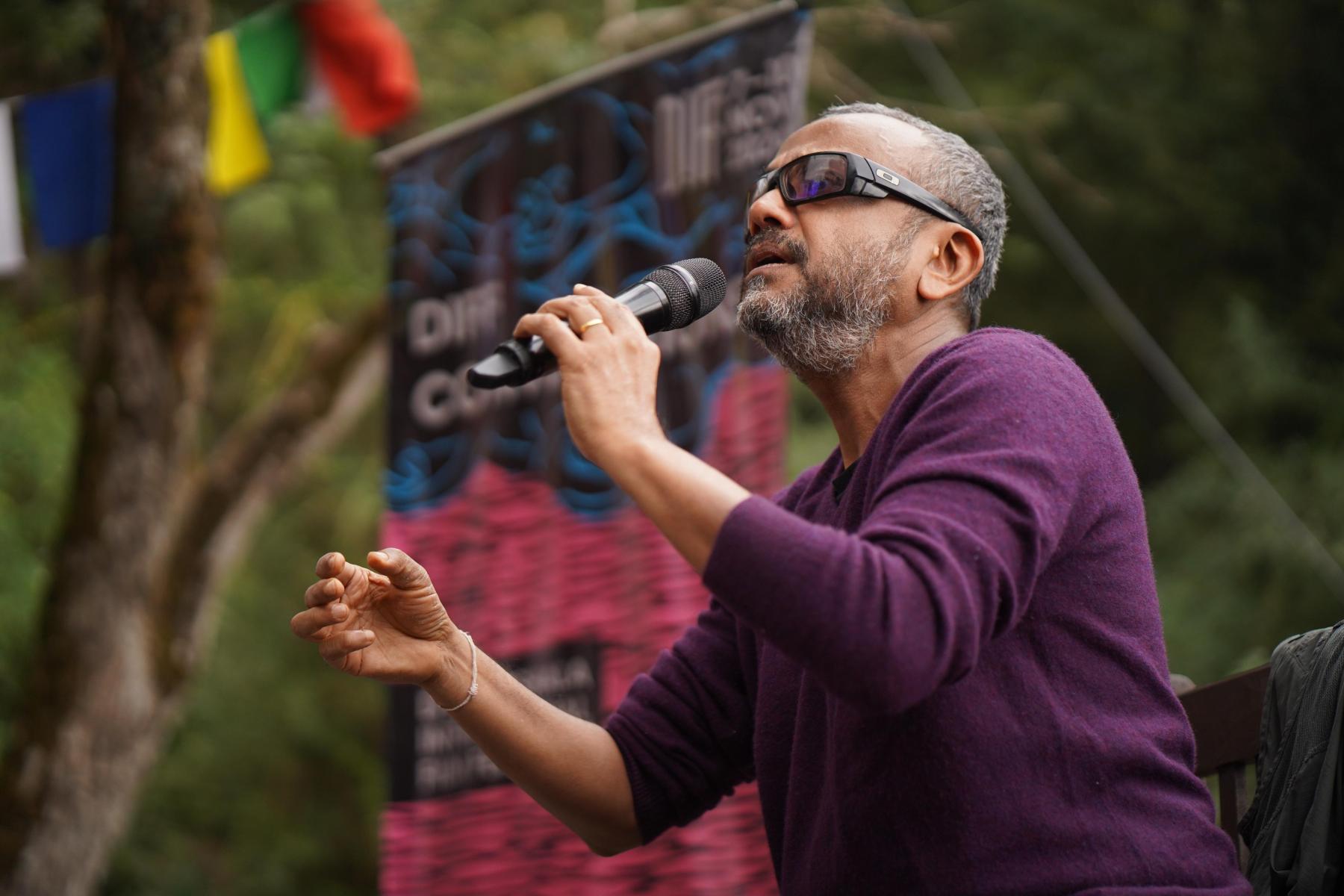
Dibakar Banerjee's Tees was one of the most anticipated screenings at the festival this year, as was his masterclass.
MV: DIFF has a lot of other forms of public programming, that often run year-long and beyond the scope of the festival itself. Can you please tell us a bit about your vision?
RS: I think, from very early on, we thought that people could come from elsewhere and watch films, but then what about people who do not have access or the exposure to watch such films? And how important is it to build audiences and nurture a cinematic culture? So that has actually been the hardest thing to do. While the festival took off much earlier, the community programmes or what we do with the schools have taken much longer. We show films that have been screened at DIFF in Tibetan schools, local Indian schools, some private schools, the B.Ed. college, the local university, Himachal University, nursing colleges, etc. We have been going to the local jail for a long time. We have also been showing them in villages along with our community partner, the NGO Jagori Grameen. So we have done a range of activities. These are very important but we have not been able to do it through the year because of funding constraints again. And I think we can do a lot more. We have tried many different things and it has been really rewarding and has great value. But it is also a challenge because it means you have to actually be working over a long period.
TS: The other programme we have is “DIFF on the Road”, which we have been doing for a number of years. Here, we select films from the DIFF line-up and partner with different organisations like film clubs, universities and NGOs, to show these films in different parts of the country. This year, we did it in Sri Lanka at Colomboscope. And we are doing one right now in Abu Dhabi as well. Previously, we have worked with Kochi Biennale. But we are also doing smaller “DIFF on the Road” events with film clubs in Pune or Jaipur. There were a whole range of events that we planned, but again, because of not having enough people and enough funding, we do the best we can.
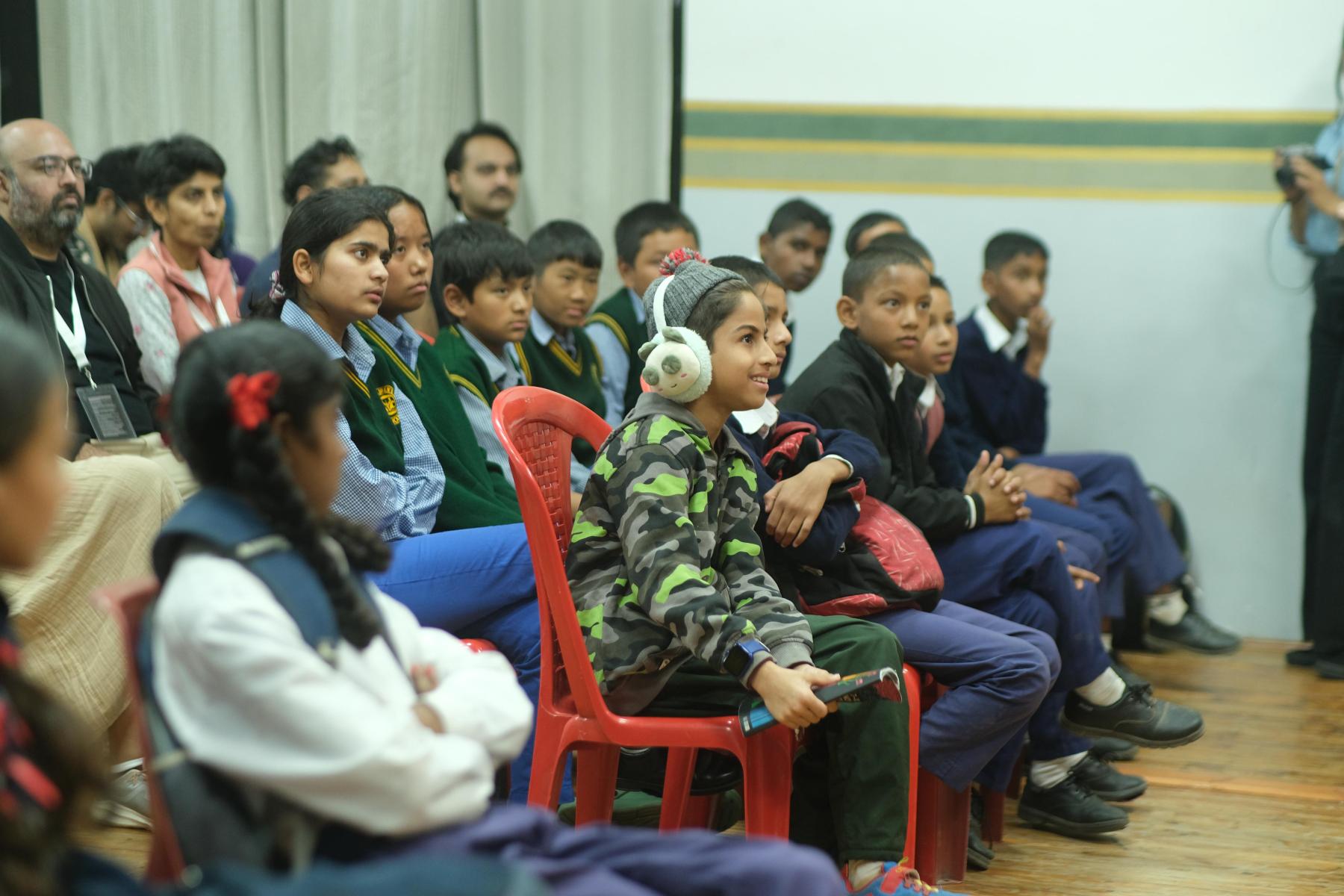
Screenings were specially held for local school children as part of DIFF’s community outreach.
MV: What is the current scenario like for independent film festivals in India? And how do you imagine the future of DIFF?
RS: That is a very hard question. A lot of new festivals are coming up around the country, so that is heartening. More and more programmers are also coming up in India, which is great. But, of course, there are constraints. All film festivals need to get censor certificates from the Ministry of Information and Broadcasting, so that is something that we all deal with. And I don't know what the future is going to hold in that regard, so let's see.
TS: I think we have reached thirteen years without in a sense any long-term planning for the future of DIFF. It has just organically reached this point, so I guess that is how we will continue. And hopefully it will evolve and there will be a space for festivals like DIFF to grow and thrive in the future as well.
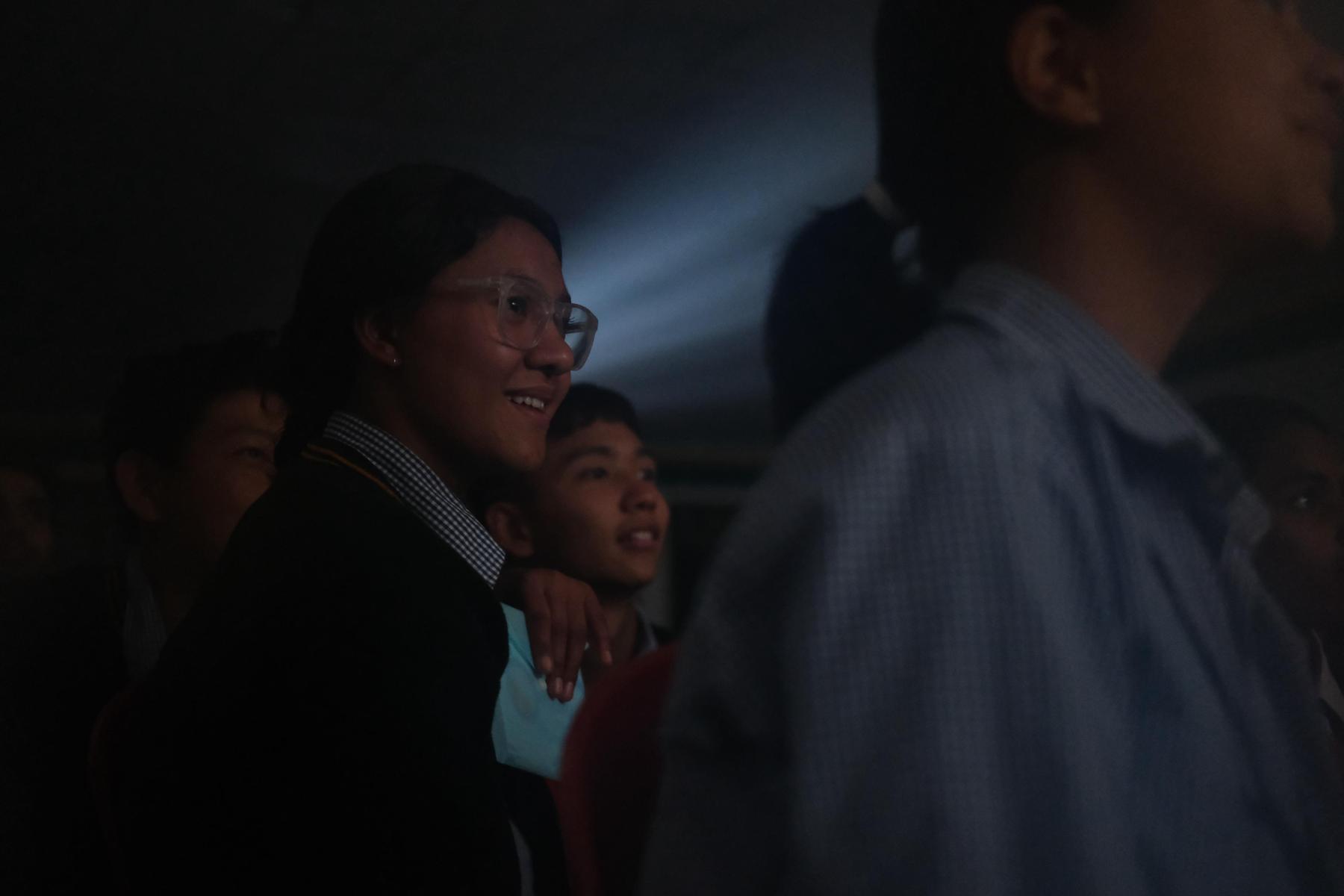
A special package of films for Young Adults screened this year was attended by many school children.
Some of the films from this year’s edition can be watched online as part of DIFF Online till 24th November 2024.
To learn more about films shown at the previous edition of DIFF, read Annalisa Mansukhani’s reflections on Achal Mishra’s Ri (2023), Santasil Mallik’s review of Dominic Megam Sangma’s Rimdoggitanga (2023) and Arundhati Chauhan in conversation with Clara Kraft Isono about her film Bawa’s Garden (2022).
All images courtesy of DIFF.




